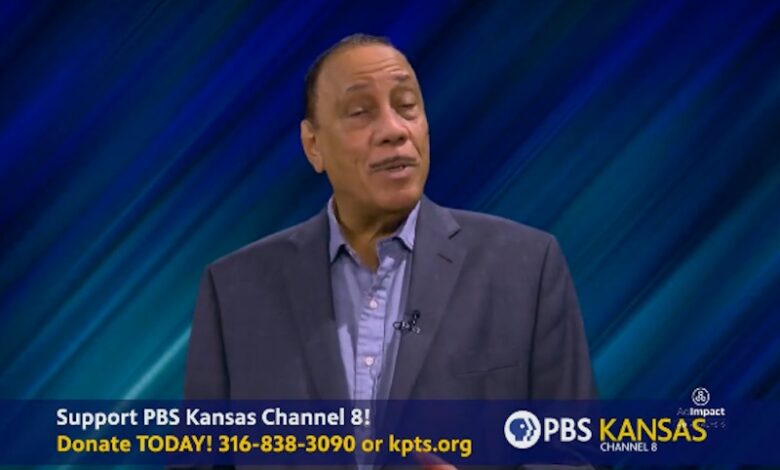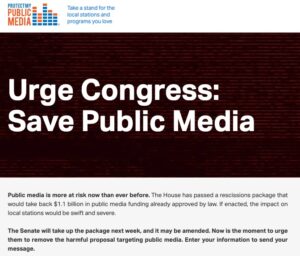Local PBS Stations May Have Broken Federal Law on Political Lobbying
Stations are telling viewers to tell Congress to vote no on cuts

In a possibly illegal on-air appeal, PBS Kansas CEO Victor Hogstrom urged viewers to contact Senators Jerry Moran and Roger Marshall ahead of a Senate vote that could strip $1.1 billion in funding from public media. The ad, featuring Hogstrom’s direct plea alongside the senators’ photos and phone numbers, asserted that federal support to PBS stations is as vital to local content—comedies, documentaries, even emergency alerts—as community donations.
Laws against lobbying
Critics pointed out the ad likely runs afoul of long-established laws forbidding such lobbying. Sen. Marshall’s office called it confirmation that PBS is using taxpayer money to lobby, while GOP strategist Brendan Jaspers slammed the network as a “Progressive Bias Syndicate” running politically motivated ads. The Federal Communications Commission (FCC), led by Commissioner Brendan Carr, has now opened an inquiry into whether the ad violates federal rules forbidding public broadcasters from using public funds for issue advocacy.
Under Section 399 of the Communications Act, noncommercial stations like PBS are explicitly barred from campaigning for or against candidates or issues, and Section 399B, along with FCC regulation 47 CFR § 73.503(d), prohibits airing promotional messages in exchange for financial or political consideration. These laws allow underwriting—but only as neutral acknowledgments, not calls to action or targeted political messaging.

Meanwhile, Kansas City’s public TV station KCPT is encouraging viewers to contact lawmakers via ProtectMyPublicMedia.org.
The wording asserts, without proof, that “pulling back support from local stations would leave communities less safe, children less prepared for school, and all of us less connected.”
Though the station isn’t airing direct phone numbers, its website offers a patch-through calling system that guides users step-by-step to reach their senators. The platform urges personalized messages to Congress. While not as aggressive as its Kansas counterpart, the Kansas City station’s approach still pushes toward political advocacy—and raises questions about whether this crosses the line into prohibited lobbying.
With the rescissions vote scheduled for July 18, the FCC investigation and backlash set the stage for a wider debate: are public broadcasters responsibly mobilizing community support, or stepping into forbidden lobbying territory?
READ: PBS’s Judy Woodruff apologizes
The questions come after PBS President and Chief Executive Officer Paula A. Kerger faced tough questions in a March 26, 2025 congressional hearing on bias. In response to numerous examples of alleged bias, Kerger responded, “PBS is committed to providing diverse, nonpartisan programming that serves the public interest. We strive for journalistic integrity and balance in all our reporting.”
In May, KCPT’s president and CEO Kliff told KSHB TV that cuts would be detrimental to “the free and universal access to educational and cultural content that Kansas City PBS and peer stations provide.” He also acknowledged that other funding was available and that the station would “continue to serve our community and deliver quality programming despite these challenges.”
The incidents in Wichita, Kansas City and likely hundreds of other PBS stations also encouraging viewers to lobby against the legislation, may not be helping their case in Congress. As scrutiny intensifies, national leaders like FCC Commissioner Carr and congressional Republicans may force a closer look at where public interest ends—and political persuasion begins.
–Dwight Widaman








